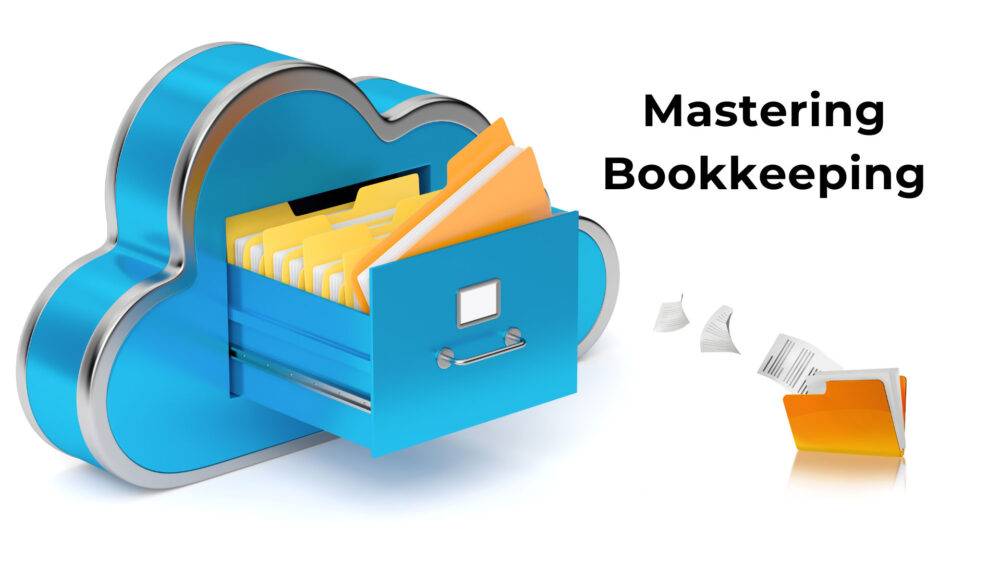Bookkeeping is an essential aspect of running a successful business. It furnishes necessary financial information for making well-informed decisions, adhering to tax regulations, engaging with stakeholders, and strategising for the future. Prospective business owners must prioritise bookkeeping to ensure their enterprise’s financial health and profitability.
Without proper bookkeeping, a business owner would struggle to precisely monitor revenue and expenses, potentially resulting in financial difficulties. Here are perspectives on the indispensability of bookkeeping and reasons why you should give it precedence.
- Bookkeeping supplies the vital information essential for making informed financial decisions. Recognising patterns in your revenue and expenses empowers you to modify your business strategy as required.
- Effective bookkeeping allows you to adhere to tax laws, fulfil tax obligations and meet deadlines. A meticulously organised bookkeeping system aids in the accurate and timely preparation and filing of BAS, IAS, and income tax returns, preventing potential penalties or fines.
- Bookkeeping facilitates efficient stakeholder communication, offering investors and lenders precise financial data for making well-informed investment decisions.
- Monitoring your financial data allows you to make informed predictions about your business. For instance, observing a pattern of escalating expenses enables you to proactively plan by either cutting costs or boosting revenue, ensuring the financial well-being and profitability of the business.
Bookkeeping is the meticulous and systematic process of recording, organising, and tracking all financial transactions in a business. Regardless of its size or industry, mastering bookkeeping is crucial for the business’ success.
Bookkeeping Tips and Tricks to Better Manage Your Business Finances
Maintain Precision and Up-to-Date Records
Precise and current records play a vital role in efficient bookkeeping. Document all financial transactions, such as sales, purchases, expenses, and payments, in a well-organised and timely fashion. This practice facilitates the easy tracking of your business’s financial performance, enabling informed decision-making.
Tip: Set aside a consistent time each month or fortnight to review your expenditures and revenues, maintaining a close awareness of your inflows and outflows. Remember to promptly file all your invoices and receipts while the details are still fresh in your memory!
Utilise Accounting (Cloud) Software
Accounting software like Xero can streamline your bookkeeping procedures and offer immediate insights into your business’s financial well-being. These software solutions can automate tasks such as invoicing, expense tracking, and financial reporting, saving you time and minimising the risk of errors.
Tip: Consistent updates and exploration of new functionalities will save time and provide real-time insights into your business’s financial health, and working with a professional can enhance your understanding of complex financial matters, ensuring strategic decision-making for sustained growth.
Maintain a clear distinction between your business and personal finances.
Separating your personal finances from your business finances is essential. This practice ensures precise tracking of your business’s financial performance and avoids confusion during tax filing.
Tip: From the onset of your business, ensure you have created a separate banking account for your business and that all key costs are attached to that account.
Regularly reconcile your accounts.
Regularly reconciling your accounts, whether on a monthly or quarterly basis, aids in spotting errors or discrepancies in your financial records. This practice is crucial for preventing costly mistakes and maintaining the accuracy of your financial statements.
Tip: Establish a regular habit of staying close to your finances from the beginning. Being well-informed of your income and expenses is critical to maintaining your records and confidence in your business’s financial health.
Consult with professionals for advice.
If you have uncertainties regarding bookkeeping best practices, consider seeking guidance from a professional bookkeeper. They can offer expert advice on adhering to tax laws and meeting financial reporting requirements, ensuring you follow sound bookkeeping practices.
Navigating bookkeeping, especially for those who are new to the field, can be challenging. Even seasoned bookkeepers may encounter mistakes. The reassuring aspect is that many of these pitfalls can be sidestepped by incorporating fundamental business bookkeeping tips into your practices.
Steer Clear of Common Bookkeeping Mistakes
- Frequent bookkeeping errors involve neglecting to reconcile accounts, leading to discrepancies between the company’s bank statement balance and accounting records. Such discrepancies may arise from transaction recording errors or oversight. To prevent this issue, bookkeepers should conduct regular account reconciliations, preferably on a monthly basis.
- Neglecting to monitor receipts is another typical error, resulting in inaccurate records and overlooked deductions. To prevent this oversight, bookkeepers should diligently track all receipts and ensure proper recording in the accounting system.
- As previously stated, intertwining personal and business expenses can complicate expense tracking and result in inaccurate records. Business owners and employees should maintain separate bank accounts and credit cards for personal and business expenses to prevent this error.
- Bookkeepers often encounter headaches with data loss. To steer clear of this issue, it is essential for bookkeepers to back up their data consistently. This can be achieved by utilising cloud-based services or external hard drives.
- Failure to stay current with frequent changes in tax laws can result in errors on tax returns. To sidestep this issue, bookkeepers should stay informed about any tax laws and regulations alterations.
Steering clear of common bookkeeping errors demands meticulous attention and diligence. It’s important to bear in mind that managing business finances involves not only tracking earnings but also monitoring spending and income sources.
Grasping fundamental skills crucial for business operation, such as basic bookkeeping or the creation of financial statements, empowers business owners to forge a secure financial future and sidestep common pitfalls. Furthermore, seeking guidance from a professional is a wise choice in moments of uncertainty.
Contact us for a no-obligation consultation for more tailored bookkeeping tips to guide you through your business finances further.


